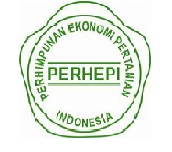- Focus and Scope
- Section Policies
- Peer Review Process
- Publication Frequency
- Open Access Policy
- Archiving
- Screening for Plagiarism
- Withdrawal of Manuscripts
Focus and Scope
PRIMA: Journal of Community Empowering and Services (PRIMA JCES) is a scientific journal as a media for publishing the results of scientific thoughts and studies on the application of science and technology to stakeholders in the agricultural sector which includes plant cultivation, plant protection, food technology, animal husbandry, soil science, agricultural extension and communication, social agricultural economics, fisheries, plantations and forestry, and the other fields whose targets are community stakeholders in the agricultural sector.
Section Policies
Articles
Editorial Pages
Peer Review Process
Every manuscript is written in the PRIMA: Journal of Community Empowering and Services will be reviewed by two reviewers (double-blind reviewers). If one reviewer rejects the article, the editor will send the article to the third reviewer. The decision to accept or reject the article script is decided in the Editor's meeting by considering the recommendations and notes made by the reviewer.
Publication Frequency
PRIMA: Journal of Community Empowering and Services published twice in a year :
- June
- December
Open Access Policy
This journal provides immediate open access to its content on the principle that making research freely available to the public supports a greater global exchange of knowledge.
Archiving
This journal utilizes the LOCKSS system to create a distributed archiving system among participating libraries and permits those libraries to create permanent archives of the journal for purposes of preservation and restoration. More...
Screening for Plagiarism
- Full plagiarism, partial plagiarism, and self-plagiarism are not allowed.
- Authors must not use the words, figures, or ideas of others without attribution. All sources must be cited at the point they are used, and reuse of wording must be limited and be attributed or quoted in the text.
- AuthorS should not in general publish manuscripts describing essentially the same research in more than one journal or primary publication. Submitting the same manuscript to more than one journal concurrently constitutes unethical publishing behavior and is unacceptable.
- Proper acknowledgment of the work of others must always be given. Authors should cite publications that have been influential in determining the nature of the reported work.
- The editor will run a plagiarism check using TURNITIN for the submitted articles before sending it to the reviewers. We do not process any plagiarised content. If an article has over 20% of total plagiarism and over 2% for each source based on the result of the check, the article will be rejected. You can resubmit/revise the article after the similarity index less than 20% for total similarity and less than 2% for each source.
Withdrawal of Manuscripts
- The author is not permitted to withdraw submitted manuscripts because doing so is a waste of valuable resources that editors and referees spent a significant amount of time processing submitted manuscripts, as well as works invested by the publisher.
- If the author still requests withdrawal of his/her manuscript while it is still being peer-reviewed, the author will be fined $50 per manuscript as a withdrawal penalty to the publisher. It is, however, unethical to withdraw a submitted manuscript from one journal if it has been accepted by another.
- If a manuscript is withdrawn after it has been accepted for publication, the author will be fined US$110 per manuscript. Manuscript withdrawal is only permitted after the withdrawal penalty has been fully paid to the Publisher. If the author refuses to pay the penalty, the author and his or her affiliation will be barred from future publication in this journal. His/her previously published articles will also be removed from our online database.


.jpg)



1.jpg)












